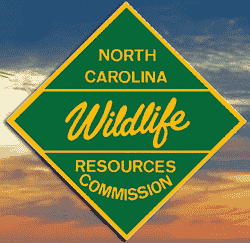North Carolina residents who are passionate about conservation and the protection of endangered wildlife can now support the cause using their state income tax refund.
The North Carolina Wildlife Resources Commission is encouraging taxpayers to consider donating a portion of their refund to the NC Nongame and Endangered Wildlife Fund. This fund supports the research, conservation, and management of the state’s most vulnerable species, including songbirds, salamanders, frogs, and other wildlife species without a designated hunting and fishing season. It also benefits game species as they often live in the same habitats.

The agency has existed since 1947 and provides programs and opportunities for wildlife-related educational, recreational, and sporting activities.
(Photo: Aerial Photograph Services)
To make a donation, taxpayers can check line 30 on their NC state income tax form, tell their tax preparer they would like to donate or enter an amount they want to be donated while filing online. Additionally, the agency will match any donations made to the fund, which means a $100 donation will result in an additional $250 for wildlife diversity initiatives.
READ ALSO: Maximize Your Retirement Savings: Discover 6 Types of Income That Are Tax-Free
Sara Schweitzer, assistant chief of the Wildlife Commission’s Wildlife Management Division, said, “The funding benefits game species too because they often live in the same habitats.
For those who did not receive a refund but still want to support nongame wildlife, direct donations can be made to the NC Wildlife Diversity Endowment Fund. The North Carolina Wildlife Resources Commission is the state agency responsible for the enforcement of fishing, hunting, trapping, and boating laws in the state. It has been providing programs and opportunities for wildlife-related educational, recreational, and sporting activities since 1947.
In conclusion, North Carolina residents now have the opportunity to support the conservation and management of the state’s endangered wildlife by making a donation using their state income tax refund. By checking line 30 on their tax form or telling their tax preparer, they can make a difference in the lives of the state’s most vulnerable species. Additionally, the agency will match any donations made, which means that every dollar donated will have double the impact on wildlife diversity initiatives.
READ ALSO: 3 Smart Money Moves For January 2023, Financial Experts Say



